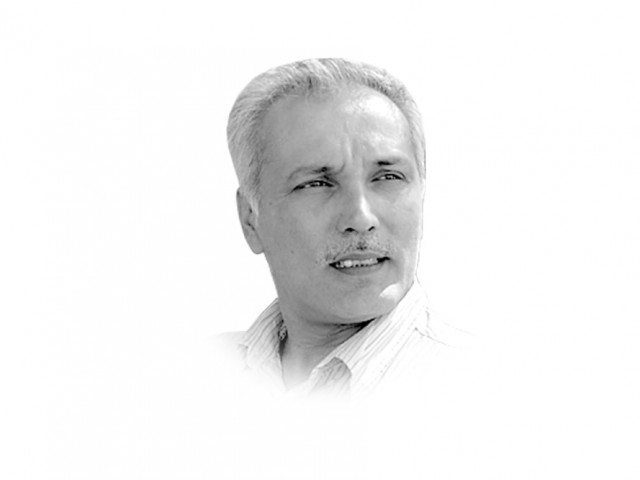Free for all in Balochistan
Balochistan's story may turn out to be far more sinister than anything to have come out of the tribal areas so far.

Sad as it is, a journalist’s murder in Balochistan is just the tip of the iceberg. Do we have any idea what is going on in a province that constitutes over 40 per cent of Pakistan’s sovereign territory?
I have spoken to several journalists in Balochistan since Sasoli’s murder, focussing largely on the conditions under which journalists have to work there. And I was least surprised to discover that in the big picture painted by them, journalists’ woes occupied only a tiny part of the canvas.
In many ways, the gangrenous violence eating viciously into the province’s tiny population is far more complex than what we have witnessed in the tribal areas since 9/11. The rag-tag army of anti-American militias nurtured and supported by Pakistan’s security establishment in the tribal areas may be a highly complex creature in terms of its internal workings but its aims and objectives remain fairly transparent.
In contrast, it has become next to impossible to tell who is fighting whom in Balochistan. Is it the primarily Pashtun Taliban, under pressure in Afghanistan and the Pakistani tribal areas, looking for new safe havens? Is it India, having secured a foothold in Afghanistan, planning to bleed Pakistan in Balochistan, just as Pakistan bled it in Kashmir for 20 years?
Is it the drug mafia, having operated quietly in the area for decades, suddenly going on a random killing spree that targets journalists, teachers, Baloch, settlers, investors, poor people and generally just about everyone under the sun? Is it the nationalists who, not finding enough resources to take on the army, have turned upon each other? Or is it the goon squads unleashed by Pakistan’s security agencies to eliminate all anti-Pakistan elements?
Whether through long, late night briefing sessions with journalists or through fake WikiLeaks, our civil and military leaders would have us believe that Indian intelligence outfit — RAW — is four square behind the violence in Balochistan. The Americans want us to understand that it is actually the presence of the Quetta Shura that is stirring up all the trouble and that it would all be over if Pakistan allowed the US to unleash their drones on the city.
Talk to local politicians and when they fail to convince you that India alone is responsible, they will conveniently turn to the drug mafias using the traditional smuggling routes through Dalbandin as an explanation. Local police officials will simply refuse to admit that anything is wrong beyond a few footloose and fancy-free unemployed youth being exploited by self-serving nationalists.
Finally, ask the nationalists and they will tell you that over the last four months alone, more than 60 political activists have been abducted, tortured and murdered by the security agencies.
We shouldn’t have to wait for something like WikiLeaks to tell us what and how much of all this is true. Balochistan is a story that the Pakistani media must investigate on its own. It may be a terrifyingly difficult assignment for one organisation or one journalist, but if the media teams up, it can blow the lid off a story that may turn out to be far more sinister than anything to have come out of the tribal areas so far.
Published in The Express Tribune, December 19th, 2010.















COMMENTS
Comments are moderated and generally will be posted if they are on-topic and not abusive.
For more information, please see our Comments FAQ